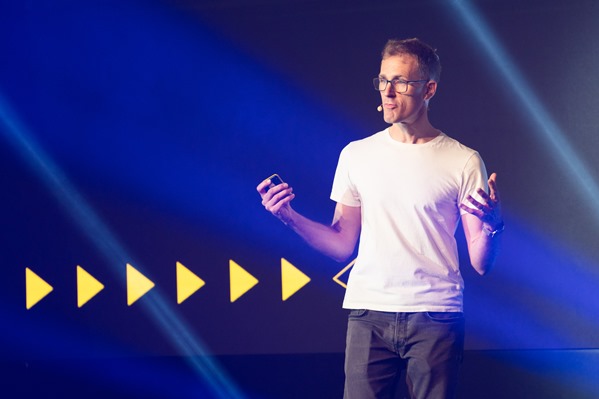
Stuart Dorman, Chief Innovation Officer at Sabio Group looks at the latest Generative AI developments.
With Microsoft’s investment in OpenAI being quickly followed by the release of Google’s Bard, the conversation around Generative AI continues to build and much of the focus has understandably been concentrated on what might come next from those two tech behemoths.
However, with all eyes focused on Microsoft and Google’s next moves, Salesforce has stridden forward with some exciting news of its own following the launch of Einstein GPT earlier this week.
Pitched as the ‘World’s First Generative AI for CRM’, Einstein GPT helps to augment and automate a series of customer functions through the integration of generative AI technology with the CRM. According to a press release from Salesforce, the tool will be able to deliver AI-created content across every sales, service, marketing, commerce and IT interaction – at hyperscale – thus transforming ‘every customer experience with generative AI’.
It’s another hugely exciting development in our space. But what exactly does it mean for those of us with a focus on how we can use this capability in the real world?
Next Generation CX
Salesforce’s unveiling of Einstein GPT is a hugely exciting development for those organisations struggling to drive productivity within their CX operations.
According to Salesforce, Einstein GPT brings AI capability together with the CRM to make every employee more productive and every CX better. It works by infusing Salesforce’s proprietary AI models with generative AI technology from its ecosystem of partners, including real-time data from Salesforce Data Cloud. Customers can then connect that data to OpenAI’s advanced AI models, using natural-language prompts directly within their Salesforce CRM to generate content that continuously adapts to changing customer information and needs in real time.
To highlight a few examples, Einstein GPT can generate personalised interactions for customers – via email for example – or generate specific responses for customer service professionals to more quickly answer customer questions.
Using generative AI in this way (creating content for humans to quickly review and share, as Einstein GPT does at the moment) provides a required ‘safety net’ by putting a human between the GPT generated output and the customer. This makes sense for the technology at this stage of it’s maturity and will drive significant gains in productivity, particularly in Service Cloud deployments where employees are generating lots of text-based content or communicating to customers in short 3-to-4 minute windows where rapid access to knowledge and content is crucial.
It’s a brilliant use case for generative AI technology. And for us at Sabio, it sits right at the heart of our expertise.
For regular readers of our content, you’ll be familiar with Sabio’s knowledge, vision and capability in the converging contact centre, AI and CRM environments.
As the lines between those three areas continue to blur, there’s a great opportunity for brands to build and deploy the kind of customer engagement ‘sweet spot’ that can really help to differentiate CX – and Sabio is uniquely positioned to help organisations take full advantage of this.
For more than two decades, we’ve been providing contact centre technology innovation and expertise, including delivering effective AI & automation solutions, to help our clients connect with their customers via the channel of their choice. And through our specialist Salesforce consultancy, makepositive, we can deliver Service Cloud Voice deployments as part of major CRM projects.
As we’ve mentioned above, this news from Salesforce is extremely exciting and we genuinely can’t wait to find out more and learn how we can adopt this capability into our customer base. It’s going to have a huge impact on productivity, particularly for those organisations using Service Cloud thanks to Einstein GPT’s summarisation capabilities and ability to offer suggested responses (to name a few benefits).
It’s brilliant to see concepts that we’ve been talking about for years, such as advisor and employee assistance, coming to life through the likes of Einstein GPT.
Prepare to Be Productive
So, what’s next?
Well, for all the positive steps that AI has made in the contact centre, we’ve yet to experience the productivity wave that everyone was expecting. But with customers now able to use natural-language prompts on CRM data to trigger powerful, time-saving automations, and create personalised, AI-generated content through Einstein GPT, it genuinely feels as though this is the beginning of that.
To summarise, it’s a really exciting time to be involved in our industry. From the launch of ChatGPT last year to the recent news on Google’s Bard and now Salesforce’s Einstein GPT, our industry is evolving, and evolving rapidly.
And the exciting part is that this is only the beginning!
In the meantime, you can read our new Generative AI e-book ‘Generative AI: A False Dawn in Customer Service, or the New Hope?‘.
About the Author
Stuart Dorman is Chief Innovation Officer at Sabio Group.
 Sabio Group is a global digital customer experience (CX) transformation specialist with major operations in the UK (England and Scotland), Spain, France, Netherlands, Malaysia, Singapore, South Africa and India.
Sabio Group is a global digital customer experience (CX) transformation specialist with major operations in the UK (England and Scotland), Spain, France, Netherlands, Malaysia, Singapore, South Africa and India.
The Group, which includes ‘makepositive’, delivers solutions and services that seamlessly combine digital and human interactions to support outstanding customer experiences.
Through its own technology, and that of world-class technology leaders such as Amazon Connect, Avaya, Genesys, Google Cloud, Salesforce, Twilio and Verint, Sabio helps organisations optimise their customer journeys by making better decisions across their multiple contact channels.
The Group works with major brands worldwide, including Aegon, AXA Assistance, BBVA, BGL, Caixabank, DHL, loveholidays, Marks & Spencer, Rentokil, Essent, GovTech, HomeServe, Saga, Sainsbury’s Argos, Telefónica and Transcom Worldwide.




